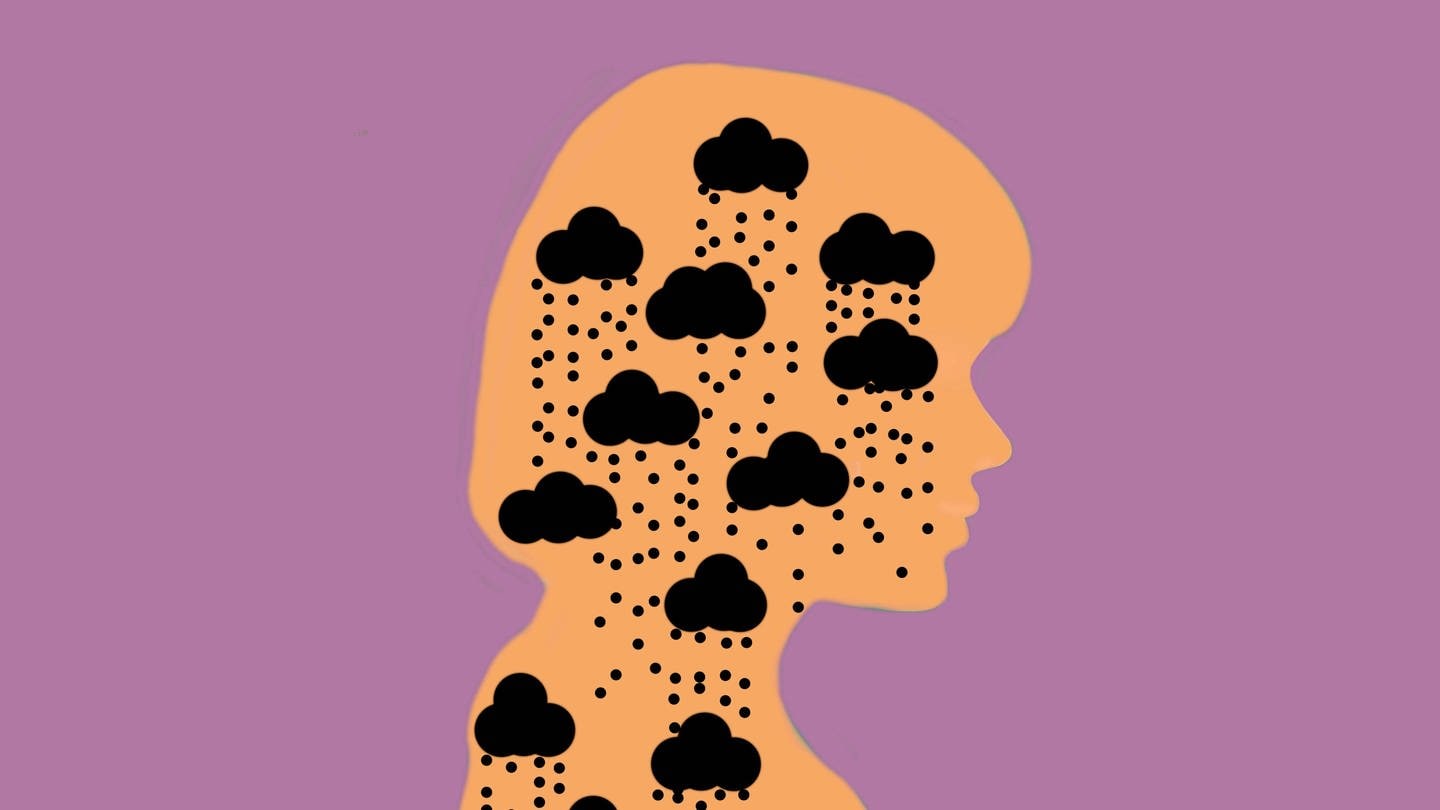More and more students are struggling with psychological stress. But colleges and universities are not sufficiently prepared for this. The German Student Union is calling for more advice and support services.
Download Audio (4.3 MB | MP3)
The number of students with mental disabilities and illnesses increased by 12 percentage points from 2016 to 2021, from 53 percent to 65 percent. In addition, there is a high number of unreported students who need support.
However, the German university system is not adequately prepared for the growing number of students with mental illnesses, says the President of the German Student Union (DSW), Beate Schücking. There are far too few advice and support offers for students.
The DSW reports: The psychological counseling centers of the student unions are literally overrun even after the official end of the pandemic.
Seeking support takes effort
It is not just due to a lack of places that students with mental health problems do not seek advice.
70 percent of students with mental health problems need advice about learning and performance problems or exam anxiety, but only about one in three have received advice on this so far.
Many students don’t know where to turn for advice and help, while others are hesitant to openly discuss a mental health crisis. This is also confirmed by educational science student Victoria Engels from the University of Heidelberg.

Not all students talk openly about their mental health. It sometimes takes a lot of effort to seek help.
IMAGO
Zoonar
German Student Union calls for more mental health offerings
According to Engels, it takes a relatively long time to bring yourself to contact the psychosocial counseling center – and by then the child has usually already fallen halfway into the well. “And then you get a message: Yes, thank you for your message in six to 12 weeks “We can contact you for an appointment,” reports the student. She considers the long waiting times to be problematic.

Mental Health Day
Mental Struggles? This is how you get a therapy place
Tuesday was Mental Health Day. If you’re not feeling well and need help, here are some tips.
At a specialist conference in Berlin in November, 170 participants from politics, universities, ministries, student unions and associations discussed the current challenges. More people are needed to take care of the mental health of students, also in order to absorb crises and not allow them to grow larger. DSW President Schücking also demands this. The existing offerings would have to be significantly expanded.
Raise awareness among lecturers about mental illnesses
But universities themselves also need to rethink their culture and respond better to students suffering from mental health problems.
Victoria Engels is also involved in student representation and reports that teachers often don’t know how to deal with students in a mental health crisis. There are often rather negative reactions. It would then say, for example: ‘If you are mentally ill, you cannot study or I cannot help you now’.
Lectures and seminars still often encourage competitive behavior instead of promoting positive cohesion. Especially in the first semesters you often hear: ‘Look to the right/left. Look who will be left among you’.

Some lecturers react to students’ problems in an overwhelmed manner. Then you won’t find the right words and won’t be able to point people in the right direction.
IMAGO
Shot shop
Encourage the students
According to Victoria Engels, it is much better to say:
Listen: first semester is hard, we are here at college, you all feel that way, but there are ways you can get through it.
As a result, first-year students could be made directly aware of support offers and other activities. For example, sports courses. “You can also act preventatively and not just when it’s too late,” says Engels.
In addition to raising awareness among teachers, universities can also improve the situation, for example by requiring fewer exams. Around half of all mentally stressed students have problems with the density of exams – according to the results of the most recent survey.

A suggestion from the DSW: provide information about support offers and prevention in lectures.
IMAGO
Panama Pictures
Science Council recommends fewer exams
The option to study part-time, for example, can help here. The University Rectors’ Conference (HRK) has therefore also spoken out in favor of more part-time study programs, as HRK General Secretary Jens-Peter Gaul reports. This is a reaction to the change in the student body: to the increasing number of psychological stresses, care tasks, greater diversity.
The exams themselves are also under scrutiny. The Science Council has recommended that there should be fewer exams overall and that they should be more focused on skills. This is intended to do justice to the increasingly diverse life situations of students. The president of the Schücking Student Union believes that this is an urgently needed step:
We cannot and must not afford to abandon a course of study or forego a master’s degree because there is a lack of compatibility between studies and psychological impairment. Society needs the skilled workers of tomorrow – we are all called upon to resolutely ensure a better compatibility of studies and mental illness.





